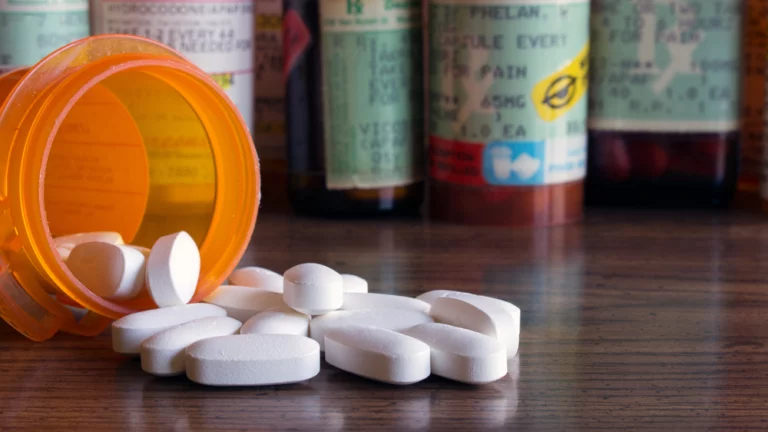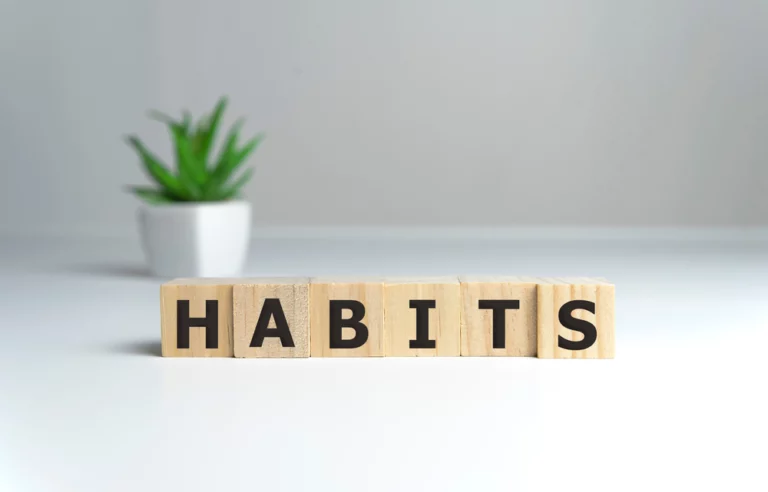In recent years, the misuse and overuse of Adderall—a prescription stimulant primarily prescribed for ADHD—have become a growing public health concern, particularly among students, young professionals, and high-pressure workers seeking enhanced focus, prolonged energy, and improved academic or occupational performance.
What often begins as a seemingly harmless attempt to boost productivity can quickly spiral into dependency, as users may develop a psychological and physical reliance on the drug to function normally. The rising prevalence of Adderall misuse is fueled by societal pressures, academic competition, and the misconception that prescription medications are inherently safe when used non-medically.
However, the consequences of prolonged abuse can be severe, ranging from cardiovascular complications and mental health disorders to strained relationships and professional setbacks. Recognizing the early signs of Adderall addiction—such as increased tolerance, withdrawal symptoms, secretive behavior, and neglect of responsibilities—is crucial for timely intervention and effective treatment.
Let’s further explore the key indicators of dependency, the short- and long-term dangers associated with Adderall addiction, and the essential steps needed for recovery, including medical supervision, therapy, and holistic support systems. By raising awareness and promoting informed discussions, we aim to empower individuals and their loved ones to seek help before addiction takes an irreversible toll.

Understanding Adderall and Its Uses
Adderall is a prescription medication commonly used to treat attention deficit hyperactivity disorder (ADHD) and narcolepsy. It is a stimulant that helps increase focus, attention, and energy by affecting certain chemicals in the brain.
How Adderall Works
Adderall contains a combination of amphetamine and dextroamphetamine, which stimulate the central nervous system. This enhances concentration and decreases impulsivity and hyperactivity in people with ADHD.
Why Adderall Is Misused
Despite its therapeutic uses, Adderall is often misused by individuals seeking to improve academic performance, stay awake for extended periods, or experience a euphoric high. This misuse can quickly lead to dependency and addiction.
Recognizing the Signs of Adderall Addiction
Identifying Adderall addiction early is critical for effective intervention and treatment.
Physical Signs and Symptoms
- Increased Tolerance: Needing more of the drug to achieve the same effects.
- Withdrawal Symptoms: Fatigue, depression, and sleep disturbances upon stopping intake.
- Appetite Changes: Noticeable weight loss due to decreased appetite.
Behavioral and Psychological Indicators
- Obsessive Focus on Obtaining the Drug: Prioritizing Adderall over personal or professional responsibilities.
- Neglecting Obligations: Skipping work or school, and neglecting relationships and hobbies.
- Mood Swings: Experiencing irritability, anxiety, or depression when not using the drug.

Dangers of Adderall Addiction
Adderall addiction carries significant risks that affect both physical and mental health.
Short-term Dangers
- Cardiovascular Issues: Increased heart rate and blood pressure can lead to heart attacks or strokes.
- Mental Health Struggles: Anxiety, paranoia, and even hallucinations can occur with high doses.
Long-term Health Risks
- Addiction and Dependency: Chronic misuse can lead to severe addiction that requires medical intervention.
- Cognitive Impairments: Prolonged use may impact memory and cognitive functions.
FAQs about Adderall Addiction
Answering common questions can guide individuals in understanding and addressing Adderall addiction.
What Causes Adderall Addiction?
Adderall addiction often begins with misuse, whether in pursuit of heightened concentration and productivity in demanding academic or professional environments or through recreational use for its euphoric and energizing effects.
Students facing rigorous coursework, professionals working long hours, and even athletes seeking a competitive edge may turn to Adderall as a shortcut to performance enhancement, underestimating its addictive potential. Initially, users may justify their consumption as a temporary or situational necessity—pulling an all-nighter before an exam, meeting a tight deadline, or staying alert during social gatherings.
However, the drug’s potent stimulating effects on the central nervous system can quickly lead to physical dependence, as the body adapts to its presence and requires larger doses to achieve the same results. Over time, increased tolerance forces individuals to escalate their usage, while abrupt cessation can trigger withdrawal symptoms such as fatigue, depression, irritability, and cognitive fog.
Beyond physical reliance, psychological cravings develop, reinforcing compulsive use as the brain begins to associate Adderall with productivity, confidence, or even emotional stability. What starts as occasional misuse can evolve into a destructive cycle of dependency, where obtaining and using the drug becomes a central focus, often at the expense of health, relationships, and personal well-being.

How Can Adderall Addiction Be Treated?
Treatment for Adderall addiction requires a comprehensive, multi-faceted approach tailored to the individual’s physical, psychological, and emotional needs. The first and often most challenging phase is medical detoxification, where the body is safely weaned off the drug under professional supervision. Since abrupt discontinuation can lead to withdrawal symptoms—such as severe fatigue, depression, anxiety, and intense cravings—medical detox ensures that patients receive proper care, including medications (when necessary) to ease discomfort and stabilize mood.
Following detox, counseling and behavioral therapy play a crucial role in addressing the root causes of addiction. Cognitive Behavioral Therapy (CBT) helps individuals recognize and modify harmful thought patterns and behaviors linked to substance abuse, while motivational interviewing (MI) strengthens their commitment to recovery. Many treatment programs also incorporate dialectical behavior therapy (DBT) to improve emotional regulation and coping strategies, particularly for those with co-occurring mental health disorders like anxiety or depression.
Support groups, such as Narcotics Anonymous (NA) or SMART Recovery, provide ongoing encouragement and accountability, allowing individuals to share experiences and learn from others in similar situations. Family therapy may also be included to repair relationships damaged by addiction and to educate loved ones on how to offer constructive support.
For those requiring intensive care, professional rehabilitation centers offer structured inpatient or outpatient programs. Inpatient treatment provides a controlled, substance-free environment with 24/7 medical and psychological support, ideal for severe addictions. Outpatient programs, on the other hand, allow individuals to maintain work or school commitments while attending therapy sessions and regular check-ins. Some facilities also integrate holistic therapies—such as mindfulness meditation, yoga, nutritional counseling, and exercise programs—to promote overall well-being and reduce relapse risk.
Long-term recovery often involves aftercare planning, including continued therapy, sober living arrangements, and relapse prevention strategies to ensure sustained sobriety. By combining medical, psychological, and social support, a well-rounded treatment plan empowers individuals to overcome Adderall addiction and rebuild a healthier, drug-free life.
Are There Alternatives to Adderall for ADHD?
Yes, there are safe and effective alternatives to stimulant medications like Adderall for managing ADHD, including non-stimulant medications and evidence-based behavioral therapies, which carry a significantly lower risk of addiction and dependency. Non-stimulant options such as atomoxetine (Strattera), guanfacine (Intuniv), and clonidine (Kapvay) work differently than stimulants by targeting norepinephrine and other neurotransmitters to improve focus and impulse control without the potential for abuse. These medications are particularly beneficial for individuals with a history of substance use disorders or those who experience adverse side effects from stimulants.
In addition to pharmacological treatments, behavioral therapies play a crucial role in ADHD management. Cognitive Behavioral Therapy (CBT) helps individuals develop coping strategies to improve time management, organizational skills, and emotional regulation. Other approaches, such as mindfulness-based interventions, parent training programs (for children with ADHD), and executive function coaching, can also provide long-term benefits without the risks associated with stimulant misuse.
Because ADHD manifests differently in each person, consulting a healthcare professional—such as a psychiatrist, neurologist, or specialized ADHD coach—is essential to determine the most appropriate treatment plan. A thorough evaluation can assess whether non-stimulant medications, therapy, lifestyle modifications (such as diet, exercise, and sleep hygiene), or a combination of approaches will yield the best results. By exploring these safer alternatives under medical guidance, individuals with ADHD can achieve symptom relief while minimizing the risk of addiction and other complications associated with stimulant medications.
Steps to Recovery from Adderall Addiction
Recovery is possible with the right strategies and resources in place.
Seeking Professional Help
- Consultation with Healthcare Providers: A medical professional can diagnose the extent of the addiction and recommend appropriate treatment plans.
- Treatment Programs: Enrolling in a rehabilitation program offers a supportive environment and access to therapies that address both physical and psychological aspects of addiction.
Building a Support Network
Family, friends, and support groups play a pivotal role in providing encouragement and accountability throughout the recovery process. Engaging with communities of people who have similar experiences can foster motivation and resilience.
Developing Healthy Coping Mechanisms
Learning stress management techniques such as mindfulness, exercise, and hobbies can help individuals resist relapse and maintain sobriety.

Embracing Recovery
Understanding the signs of Adderall addiction—whether in yourself or a loved one—and taking proactive steps toward intervention can mean the difference between prolonged suffering and reclaiming a healthy, balanced life. Left unaddressed, Adderall misuse can lead to a cascade of devastating consequences, including cardiovascular complications, severe mental health disorders like anxiety and depression, cognitive decline, and strained personal and professional relationships. However, with early recognition and proper treatment, these risks can be significantly mitigated, paving the way for sustainable recovery.
Recovery from Adderall addiction and dependency is not a linear process but rather a journey that demands patience, commitment, and a strong support network. Professional guidance from addiction specialists, therapists, and medical providers is crucial in addressing both the physical and psychological aspects of dependency. Equally important is the encouragement of family and friends, whose understanding and support can provide the emotional foundation needed for long-term success. Structured treatment programs, including medically supervised detox, individualized therapy, and holistic wellness strategies, equip individuals with the tools to rebuild their lives free from substance reliance.
If you or someone you know is struggling with Adderall addiction or dependency, remember that help is available, and recovery is possible. Knoxville Recovery Center offers personalized, evidence-based treatment programs designed to meet the unique needs of each individual. From medical detox and intensive therapy to aftercare planning and relapse prevention, our comprehensive approach ensures that every client receives the care and support necessary to achieve lasting sobriety.
Taking the first step toward recovery may feel daunting, but reaching out for professional assistance can set the foundation for a healthier, more fulfilling future. You don’t have to face this challenge alone—support and healing are within reach. For more information about our addiction recovery services, contact us or call today to speak with an addiction recovery specialist.








